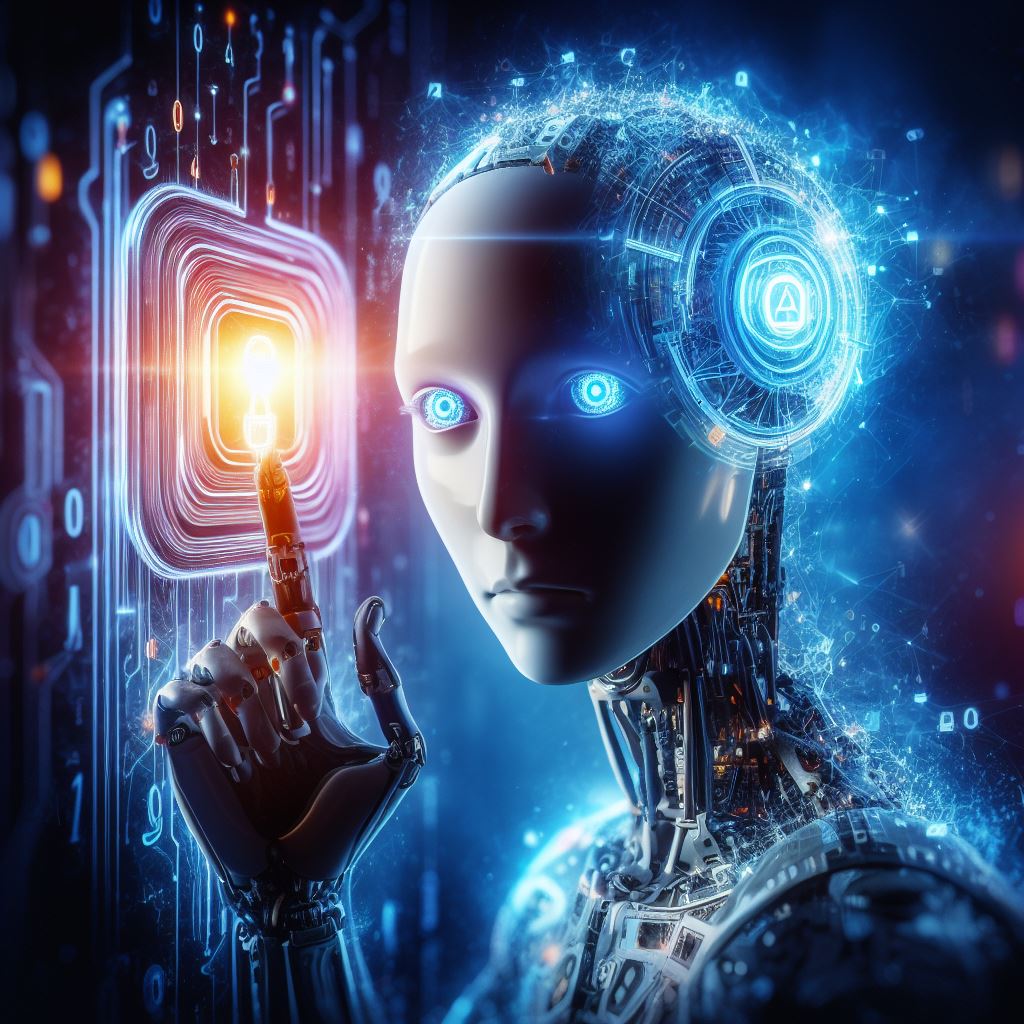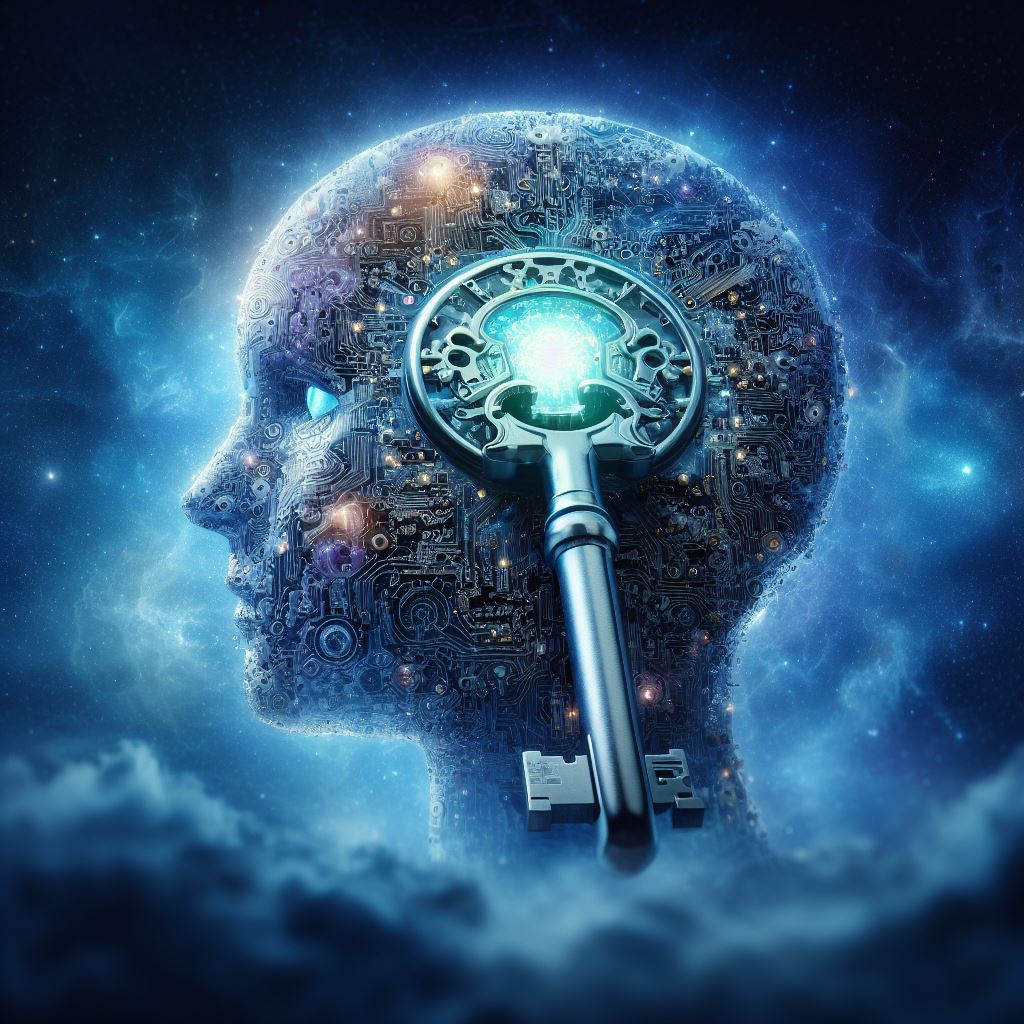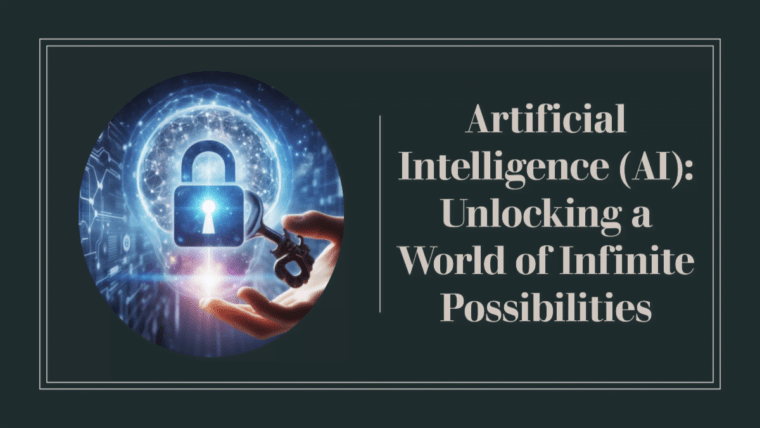Explore the limitless potential of Artificial Intelligence (AI) in healthcare, education, finance, entertainment, and more. Learn how AI is revolutionizing these industries and what the future holds.
Introduction
Artificial Intelligence, often abbreviated as AI, is not merely a buzzword; it’s a revolutionary technology that is reshaping the world as we know it. In an era where digital innovation has become the driving force behind countless industries, AI stands at the forefront as a formidable tool that continues to redefine the realms of possibility. From healthcare to education, finance to entertainment, and beyond, AI is leaving an indelible mark on virtually every sector. In this article, we will embark on a journey to explore the extraordinary landscape of opportunities offered by AI.
The AI Spectrum: An Overview

To appreciate the true potential of AI, one must first grasp its fundamental nature. AI encompasses the development of computer systems designed to perform tasks that conventionally demand human intelligence. These tasks span a spectrum of activities, including problem-solving, learning, reasoning, and natural language comprehension. AI can be broadly categorized into two primary types: Narrow AI, also known as Weak AI, and General AI, also referred to as Strong AI.
- Narrow AI (Weak AI): This AI specializes in a particular task. While it excels in its designated role, it lacks the versatility to extend its capabilities to other domains. Narrow AI systems power everyday applications like virtual personal assistants (think Siri or Alexa) and recommendation algorithms found on streaming platforms such as Netflix.
- General AI (Strong AI): In the realm of science fiction, General AI reigns supreme. It alludes to AI systems possessing human-like intelligence, capable of performing an extensive array of tasks akin to a human. However, we have yet to achieve this level of AI, as building a genuinely General AI remains an intricate and elusive pursuit.
With a foundational understanding of AI in place, we can now delve into the infinite possibilities it offers in the present day.
Transforming Healthcare
AI is poised to revolutionize healthcare, impacting diagnostics, treatment, and patient care:
- Medical Imaging: AI’s capacity to analyze medical images such as X-rays, MRIs, and CT scans is a game-changer. AI algorithms can detect anomalies and aid physicians in delivering more precise diagnoses, ultimately enhancing patient care and reducing human error.
- Drug Discovery: Drug development is an arduous and time-consuming process, but AI is accelerating it. By scrutinizing vast datasets, AI identifies potential drug candidates and forecasts their interactions within the human body, potentially leading to faster discoveries and novel treatments.
- Personalized Medicine: AI can customize treatment plans based on an individual’s genetic and clinical data, ensuring that each patient receives the most tailored care, ultimately improving the effectiveness of medical interventions.
- Healthcare Chatbots: AI-powered chatbots streamline patient interactions, providing information, scheduling appointments, and offering post-treatment follow-ups. This not only enhances patient engagement but also lightens the administrative load on healthcare providers.
- Health Monitoring: Wearable devices equipped with AI can continuously track vital signs and health metrics, issuing early warnings about potential health issues, thus facilitating timely intervention.
Revolutionizing Education
AI is making significant inroads into the education sector, personalizing and enhancing the learning experience:

- Personalized Learning: The one-size-fits-all approach to education is evolving with AI. It can adapt the learning experience to individual students, accommodating their pace and preferences, ultimately leading to improved engagement and learning outcomes.
- Intelligent Tutoring Systems: AI can serve as a virtual tutor, offering real-time feedback and assistance in subjects where students may struggle. It identifies areas of difficulty and provides additional resources or practice materials to bolster understanding.
- Automated Grading: Grading assignments and tests can be labor-intensive. AI can alleviate this burden by automating the grading process, allowing educators to allocate more time to teaching and providing students with more valuable feedback.
- Language Learning: AI-powered language learning applications offer pronunciation feedback, facilitate language exercises, and even engage users in simulated conversations in foreign languages, enhancing language acquisition.
- Accessible Education: AI is breaking down barriers by providing tools like text-to-speech and speech-to-text converters, making educational content accessible to individuals with disabilities.
Transforming Finance
AI has brought a revolution to the finance industry, optimizing operations, enhancing decision-making, and fortifying security:
- Algorithmic Trading: AI-driven algorithms analyze market data and execute trades at lightning speeds, making financial markets more efficient and profitable.
- Fraud Detection: AI is a formidable tool in detecting and preventing fraudulent transactions by scrutinizing transaction patterns and identifying suspicious activities.
- Credit Scoring: AI assesses an individual’s creditworthiness by evaluating extensive datasets, producing more accurate credit scores that benefit both lenders and borrowers.
- Risk Management: AI models analyze intricate financial data to predict and mitigate risks, benefiting individual investors and financial institutions by averting crises and reducing losses.
- Customer Service: AI-powered chatbots streamline customer interactions, handling routine inquiries and transactional tasks, making customer service more efficient and accessible 24/7.
Elevating Entertainment
Entertainment, too, has been profoundly impacted by AI-driven technology:
- Content Recommendation: Streaming platforms employ AI algorithms to analyze users’ viewing history and preferences, making tailored content recommendations that keep viewers engaged.
- Content Creation: AI is not confined to consumption; it’s also a creator. AI-generated music, art, and even written stories are becoming increasingly sophisticated, blurring the lines between human and machine creativity.
- Video Games: AI plays an integral role in game development, creating non-player characters (NPCs) that react intelligently to players’ actions, fostering immersive and captivating gaming experiences.
- Virtual Reality (VR) and Augmented Reality (AR): AI enhances the immersive qualities of VR and AR applications, providing more realistic simulations and interactive experiences, transforming gaming, training, and other applications.
- Sports Analysis: AI scrutinizes vast amounts of sports data, providing insights into player performance, strategy, and game statistics. This not only enhances the viewing experience but also assists teams in optimizing their performance.
Enhancing Customer Service
AI has dramatically improved customer service by automating and personalizing interactions:
- Chatbots and Virtual Assistants: AI-driven chatbots are the backbone of round-the-clock customer service. They provide quick responses, assist with inquiries, and enhance efficiency by freeing up human agents to tackle more complex issues.
- Natural Language Processing (NLP): AI is capable of understanding and interpreting human language, allowing for more effective engagement with customers through written or spoken communication.
- Predictive Analytics: AI leverages customer data to predict their needs and preferences, enabling businesses to proactively address issues, offer personalized recommendations, and deliver customized experiences.
- Sentiment Analysis: AI monitors social media and customer feedback, gauging public sentiment about a brand or product. This real-time feedback allows companies to respond promptly to issues and capitalize on positive sentiment.
Transforming Transportation
AI has significantly impacted transportation systems, affecting autonomous vehicles, traffic management, and ride-sharing services:
- Autonomous Vehicles: Self-driving cars and trucks utilize AI to navigate and make real-time decisions, offering the promise of safer and more efficient transportation.
- Traffic Management: AI optimizes traffic flow, reducing congestion and enhancing public transportation systems, improving commute times and the overall transportation experience.
- Ride-Sharing and Delivery Services: AI-matched drivers and couriers offer efficient services through platforms like Uber and DoorDash, transforming how we access transportation and food delivery.
- Predictive Maintenance: AI can forecast when vehicles and infrastructure components require maintenance, decreasing downtime and improving safety by preventing costly repairs or replacements.
Contributing to Environmental Conservation
AI serves as an invaluable tool for environmentalists and conservationists:
- Wildlife Monitoring: AI, in conjunction with camera traps and acoustic data, aids in the monitoring and protection of endangered species. It can identify and track animals, advancing conservation efforts.
- Climate Modeling: AI processes vast datasets to enhance climate models and predict weather patterns more accurately, providing essential insights into climate science.
- Energy Efficiency: AI optimizes energy consumption in buildings, industries, and transportation, reducing carbon emissions and minimizing the environmental impact.
- Agriculture: AI-powered drones and sensors monitor crop health and optimize irrigation and pesticide use, increasing agricultural sustainability and reducing the environmental footprint.
- Natural Disaster Prediction: AI analyzes historical data to improve the prediction and early warning systems for natural disasters like hurricanes, earthquakes, and floods, saving lives and mitigating damage.
Fortifying Cybersecurity
In a world increasingly vulnerable to digital threats, AI offers a robust defense against cyberattacks:

- Threat Detection: AI analyzes network traffic and identifies suspicious patterns or activities that may indicate a cyberattack, responding faster and more accurately than conventional security measures.
- Behavioral Analysis: AI monitors user behavior to detect unusual actions signifying unauthorized access or data breaches, reinforcing security with proactive measures.
- Malware Detection: AI recognizes and quarantines malware, preventing it from infiltrating systems and causing data breaches.
- Authentication: AI enhances security through biometric authentication, voice recognition, and behavioral profiling, providing more robust defense mechanisms against unauthorized access.
- Security Automation: AI can react to security incidents in real-time, isolating compromised systems, conducting investigations, and mitigating threats rapidly to minimize damage.
Personalized Marketing
AI is transforming the marketing landscape, tailoring and optimizing campaigns for businesses and customers:
- Personalized Marketing Campaigns: AI delves into vast customer data, customizing marketing messages and content to enhance engagement and conversion rates.
- Customer Segmentation: AI identifies specific customer segments based on behavior, allowing businesses to target marketing efforts more effectively, ensuring the right message reaches the right audience.
- Email Marketing Optimization: AI optimizes email campaigns, determining the best timing and tailoring content to recipients, ultimately resulting in higher open and click-through rates.
- Content Recommendations: AI algorithms suggest products or content based on users’ browsing and purchasing history, driving sales and keeping customers engaged.
- Dynamic Pricing: AI adjusts pricing in real-time, considering factors such as demand, competition, and customer behavior, maximizing revenue while assuring customers of receiving the best value.
Supporting Research and Development
In the sphere of research and development, AI emerges as an indispensable companion:
- Scientific Discovery: AI analyzes vast datasets and simulations, aiding scientists in making discoveries across domains like astrophysics, genetics, and chemistry, uncovering patterns and correlations beyond the scope of traditional methods.
- Drug Development: AI accelerates drug discovery by predicting the impact of various compounds on diseases, expediting the development of new medications.
- Material Science: AI contributes to the development of new materials with unique properties, ranging from superconductors to lightweight and durable substances, revolutionizing industries such as electronics and construction.
- Data Analysis: AI dives deep into complex datasets, uncovering patterns, trends, and anomalies that traditional methods may overlook. It plays a pivotal role in fields like climate science, economics, and social sciences.
- Automation: AI automates repetitive laboratory tasks, freeing researchers to focus on more creative and intellectually demanding aspects of their work. This not only enhances efficiency but also accelerates the pace of research and development.
The Future of AI
The potential of AI knows no bounds. As technology continues to advance, AI is set to become an even more integral part of our lives, influencing an ever-expanding array of fields. Yet, with these opportunities come important challenges and responsibilities. Ethical concerns, data privacy, and the potential for job displacement demand attention. Responsible development and utilization of AI are essential to ensure that the technology benefits society as a whole.
Conclusion
the question, “What can you do with AI?” is not merely about what AI can do for you as an individual but how it is profoundly shaping our world. From healthcare to education, finance to entertainment, AI is reshaping industries and elevating our daily lives. As AI continues to evolve, it presents boundless opportunities for creativity, innovation, and, most importantly, making the world a better place. It’s a thrilling journey that we’re just beginning to explore, and the possibilities are limited only by our collective imagination and commitment to responsible use.






Leave a Reply Cancel reply